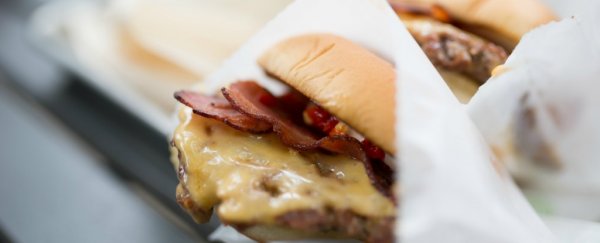Count your steps. Hit the gym. Bike to work. If you've tried to lose weight, you know it's important to get moving.
But with all our emphasis on working out to 'burn off' what we eat, experts say we've missed the real problem: What we eat.
"There's a persistent myth that you can exercise your calories away," Andy Bellatti, a registered dietitian and the cofounder of Dietitians for Professional Integrity, told Business Insider.
In reality, while getting active is important for your mood and overall wellbeing, it generally does not result in rapid weight loss. On the other hand, successfully changing your diet might.
Dietary changes are especially important at the beginning of any new weight loss plan, Bellatti said, since people who are trying to lose weight by dedicating hours each day to exercise may get discouraged when the pounds don't magically melt off.
Instead, it's better to focus on making gradual changes to your diet, such as eating more vegetables and cutting back on refined carbohydrates.
A large recent review of studies involving more than 3,000 obese adults who'd lost weight on a low-calorie diet compared how well they were able to keep it off after they either stuck to a new eating plan or began exercising regularly.
While permanently tweaking their diets appeared to help maintain weight loss, "no significant improvements were seen for … exercise," they wrote.
One reason diet may play such a strong role in weight loss is that exercise burns off far fewer calories than most people think, said Philip Stanforth, a professor of exercise science at the University of Texas and the executive director of the Fitness Institute of Texas.
This holds especially true when compared to the high caloric content of many processed and fast foods like burgers, fries, and milkshakes. Many classic fast food meals can add up to thousands of calories, sometimes exceeding the amount most adults need in a day.
"Thinking practically, keep in mind you'd have to walk 35 miles to burn 3,500 calories," Stanforth said. "That's a lot of walking."
35 miles is 56 kilometres. That's 2.6 times the length of Manhattan.
But that's not to say exercise is unimportant.
Another large review of studies that included more than 1,000 adults suggested that in the long-term (a year or more), providing people with a weight loss plan that combines a healthy eating regimen and regular exercise helped people lose more weight than either diet or exercise alone.
A wealth of recent research also suggests that when it comes to the brain, aerobic exercise may be the wonder drug we've long been looking for.
Not only have sweaty workouts been linked with boosting your mood; they have also been found to protect against age-related decline and may even improve memory.
"While exercise might not be the key to weight loss, it is important for health overall, especially for mental health," Bellatti said.
This article was originally published by Business Insider.
